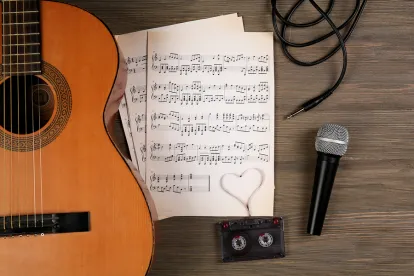On October 25, 2022, the US Copyright Office proposed a new rule that would end and reverse actions of the Mechanical Licensing Collective (MLC) that have deprived songwriters and their heirs of US copyright royalties after they have recaptured ownership of their musical works following exercise of their statutory termination rights.
The new rule would resolve an ongoing dispute between songwriters (or their heirs) and the MLC – the entity selected by the Copyright Office pursuant to the Music Modernization Act (MMA) – to administer a “blanket” mechanical license available as of January 1, 2021, to digital music service providers (DSPs), such as Spotify, YouTube Music, and Pandora. The new rule would require the MLC to distribute royalties to the party who owns the US copyright in a musical composition as of the end of the month for which the MLC calculates royalties due. As a result, songwriters (or their heirs) who recapture ownership, rather than the pre-termination music publishers, will be paid royalties from the MLC. The proposed rule is significant as the MLC, in almost all circumstances, has treated pre-termination music publishers as perpetually entitled to royalty payments, despite the publishers no longer owning the US copyrights in the applicable musical works.
This important development comes on the heels of a year-long effort by a team of ArentFox Schiff attorneys (and a handful of others), on behalf of their songwriter clients and the songwriter community generally. The groups have worked to persuade the Copyright Office, which has supervisory authority over the MLC, to remedy the MLC’s failure to distribute post-termination royalties to the rightful owners: the post-termination owners of the musical works. If the final published rule is the same as that proposed, songwriters and their heirs who have waited patiently for many decades will finally be able to enjoy their proverbial “second bite of the apple” from songs assigned to third parties many years ago.
The Copyright Office issued a Notice of Proposed Rulemaking seeking comments about the Proposed Rule from interested parties by November 25, 2022. Replies are due by December 27, 2002. Unless the comment period is extended, this is a relatively “fast track” for the Proposed Rule, perhaps an indication by the Copyright Office that it views adoption of the Rule to be of immediate importance. In light of the nearly $700 million of royalties already paid by the MLC to members[1], terminating parties likely could not agree more.
Termination Rights
By way of background, termination rights were made available to songwriters and other creators in the 1976 Copyright Revision Act, effective January 1, 1978. These rights were in conjunction with copyright term extensions intended to “harmonize” the US regime with longer copyright terms enjoyed by much of the rest of the world. Specifically, the former US copyright term of 56 years (from an original term of 28 years and a so-called “renewal” term also of 28 years) was extended to 75 years for works created through December 31, 1977. The term of protection for works created after January 1, 1978, was established as the life of the author (or the life of the last surviving author in the case of multiple creators) plus 50 years, mirroring the customary term of protection overseas. In 1998, these copyright terms were extended by an additional 20 years – 95 years for pre-1978 works, and life plus 70 years for post-1977 works.
This sea change in the term of copyright raised a host of issues and questions. Indeed, now that copyrights in pre-1978 works were to be extended by 19 years (from 56 years to 75 years), who would reap the benefit of those additional years of protection? With works created after January 1, 1978, which parties would be entitled to enjoy the benefits resulting from the significant increase in the copyright and for how long?
The legislative history of this important revision of the Copyright Act made clear that Congress, in large part, promulgated the termination provisions as an effort to redress the unequal bargains made between creators and third parties to whom they customarily assigned their works upon creation. Congress sought “to protect authors against unremunerative transfers and to get rid of the complexity, awkwardness, and unfairness of the renewal provision” that generally resulted from creators being unable to exploit their works themselves. For example, at creation, assignees like music publishers customarily acquired rights for the entire, existing 56 year term, making it all but impossible for authors to recapture the US copyrights in the renewal term.
Under the then new law, creators were given an opportunity to recapture their US copyright after 56 years for works transferred prior to 1978 and, generally, after 35 years for works transferred on or after January 1, 1978. These recapture rights and the dates within which such rights must be exercised are set forth in Sections 203 (for post January 1, 1978 transfers) and 304 (for pre January 1, 1978 transfers) of Title 17 USC, the Copyright Law of the United States.
The Derivative Works Exception
Notably, the new termination provisions provided a critical “exception” to recapture, the so-called Derivative Works Exception (17 USC §203 (3)(b)(1) and §304 (c)(5)(A)). In the event of recapture, a derivative work—or a work based on a work, or a recording of a song or a film based on a book, for example—licensed under the terminated, original grant may continue to be utilized under the terms of the original agreement, even after its termination.
The Derivative Works Exception was first construed in Mills Music, Inc. v. Snyder, 469 US 153, 172–73 (1985), a case involving entitlement to post-termination royalties. There, a songwriter assigned his copyright in a song to a publisher, who, in turn, issued voluntary mechanical licenses to record companies to create derivative works – recordings of the song.
Years later, when the songwriter’s heirs terminated the publisher’s original grant of the US copyright, the heirs claimed they were entitled to royalties generated by the record companies from the continuing sale of new copies of the recordings after termination. However, the Supreme Court held that the original publisher – not the songwriter’s heirs – was entitled to continued receipt of the royalties. According to the Court, the publisher had originally issued a voluntary mechanical license and the Copyright Act should be read “to preserve the total contractual relationship,” including the record companies’ duty to pay the publisher any royalties, and the publisher’s duty to pay the songwriter or his or her heirs or successors any due royalties.”
The opinion was heavily criticized by the dissent as inconsistent with Section 115 of the Copyright Act, which provides that statutory mechanical license royalties are to be paid to the current owner of a copyright. The majority responded that the licenses at issue were voluntary and not statutory. To date, no court has addressed the applicability of the Derivative Works Exception to a statutory license. This lacuna therefore informs the dispute the Office seeks to resolve with its new Proposed Rule.
Statutory Blanket License Resulting from the MMA
With the passage of the recent MMA, a new statutory blanket license was created to enable a single entity, selected and supervised by the Copyright Office, to license mechanical uses: the MLC. This rendered obsolete the old, inefficient system in which thousands of music publishers individually issued voluntary licenses to a vast array of music users. The Copyright Office chose the MLC to administer the blanket license and, after study and comment, establish the operating rules of the fledgling entity to be in place on January 1, 2021, when the blanket license became available.
Pursuant to the new blanket license regime, soon after the MLC began operations, terminating songwriters filed claims of entitlement to receipt of post-termination mechanical license royalties from streamed music. Initially, royalty disputes between songwriters and publishers were placed in suspense pursuant to the provisions of the MLC’s Dispute Policy. The policy was to, in effect, give the disputants an opportunity to settle their disputes voluntarily, or to ask a court of competent jurisdiction to decide the matter. That is the course followed by all other “collecting” organizations who license, collect and distribute royalties. For example, in the event of a dispute over entitlement to royalties, ASCAP and BMI remain neutral and hold royalties until the dispute is resolved, one way or another.
Nevertheless, the MLC eschewed neutrality and adopted a new terminations policy in which, on a default basis, terminated publishers would continue to receive post-termination royalties because of the MLC’s view on the applicability of the Derivative Works Exception and the holding in Mills. The MLC did so notwithstanding the fact that the Copyright Office had rejected virtually the same default rule in September 2020, when proposed by the MLC to be part of the initial operating rules of the organization.
The MLC’s legal interpretation was challenged by songwriters immediately, but the MLC declined to change its policy. The proposed rule makes plain that the Copyright Office firmly believes that the MLC’s interpretation of the Derivative Works Exception does not apply in the context of a statutory blanket license. No derivative works are created under the blanket license and a terminated publisher is not the copyright owner of the work when such royalties are generated.
Implications of the Proposed Rule
The proposed rule, if adopted, would deem the recapturing original songwriter (or his or her heirs or successors) the proper payee for all post-termination royalties under the blanket regime. Equally important, the MLC would be required to immediately repeal its hastily adopted statutory terminations Dispute Policy, and within 90 days of adoption of the Copyright Office’s rule, adjust all royalties previously distributed pursuant to its misguided policy.





 />i
/>i
